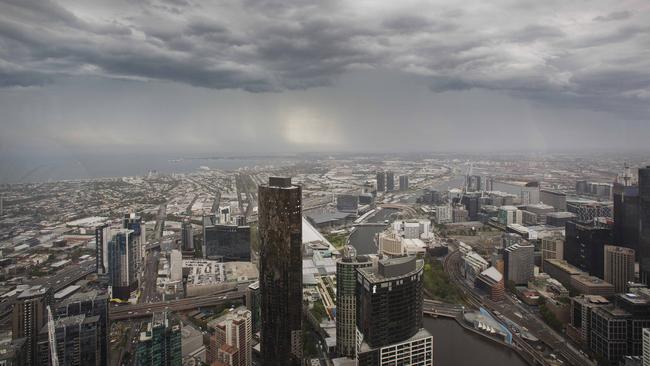Melbourne apartments a threat to banks and the broader economy
Without urgent action, problems in the Melbourne apartment market could soon spread to the banks and the broader economy.

The asking price for that $161,000 apartment in the general market would have been in the order of $550,000. Clearly, one seller was sick of the fact that their apartment was not selling and simply put it on the market for sale to the highest bidder. In the next six months many tens of thousands of apartments in Melbourne and around Australia that have been bought off the plan by Chinese and other Asian investors will come up for settlement.
In Sydney, there may be some bumpy situations but with Meriton’s Harry Triguboff controlling the market, the development of a secondary market, as is occurring in Melbourne, will simply not happen or have limited impact.
Triguboff is helping a number of his Chinese buyers to gain finance and this is made easier because the off the plan purchase price of the apartments is often well below the market as expressed in recent sales.
In Melbourne, there are many forces in the market and it is harder to get a handle on just what is happening.
I was yarning to an employee of one of the big four banks the other day and they said that the rate of settlement on the developers they are funding is probably in the vicinity of 75 per cent, which is much higher than previously estimated.
Those attempting Melbourne apartment developer rescue packages are discovering that about a third of the Chinese buyers are able to settle promptly when the apartment is completed. Many of the settlements come from Chinese banks that have money outside China and they secure the loan on the basis of Chinese assets held by the Chinese apartment buyer.
Another third are really struggling to find the money but, if given time, seem to be managing it, although as the number of apartments coming on the market that require settlement increases, more of them may struggle. There is a risk that as developers struggle to fund the delays from this one third, a panicked big bank may pull the rug.
And then, finally, there is another third that simply can’t raise the money. But there are syndicates moving around looking to fund some of the better apartment purchases. If any bank pulls the rug on a major developer the whole house of cards will fall over.
Australia is not well served by the Reserve Bank that calculated Australia’s exposure to the apartment market on the basis of a very narrow lot of apartments in the city (Apartment oversupply problem worse than Reserve Bank is saying, October 17).
There is no doubt that, leaving aside global events, this is the highest risk segment of the Australian economy.
If a significant portion of the apartments being put up is frozen and the buyers can’t settle, then it will substantially reduce economic activity in Australia’s second largest city which will affect the rest of Australia and will almost certainly spread to Brisbane, which also has its own problems.
In the Canberra swamp the bright sparks have allowed legislation that prevents a Chinese off the plan buyer selling their apartment to another foreign buyer.
In normal circumstances this might be a reasonable strategy but in the dangerous situation we are now facing it is simply foolhardy.
The government needs to be looking at introducing temporary legislation so that Chinese off the plan buyers can transfer their entitlement to some other investor in China and not have the Foreign Investment Review board knocking on their door.
The situation is too volatile and dangerous for the Canberra swamp to play silly games.
Fascinatingly, this time there is still interest from Chinese developers in some of the land that is coming on the market, which shows that if we can get through the current problems there is still more activity ahead.
China sees Sydney and Melbourne as world cities and apartments, particularly in Melbourne, are very cheap.
But increasingly the Victorian land development industry has become frustrated with the Victorian government, which is increasing the minimum size of apartments and at the same time limiting the number of apartments that can be built on one block (Naive Victorian apartment rules shoot economy in the foot, August 31).







A number of executives in our large banks paled this week when they read that a one-bedroom apartment in Melbourne had sold for $161,000. What happens in the apartment market in Melbourne will have a big influence on the Australian economy and the banks’ problem loans. A secondary apartment market that sells way below the values the Chinese and other off the plan buyers are paying is very dangerous.